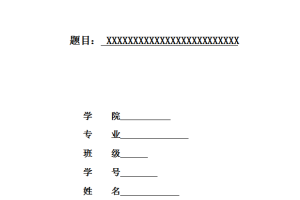摘要
随着经济全球化和金融业的发展,境外上市已经成为当前中国企业融资进程中令人瞩目的现象。境外上市在国外已经有近三十年的历史,但国内起步较晚。近年来我国越来越多的民营企业成功登陆境外证券市场,而获取国际资本是其主要目的。本文在这样的背景下,对境外上市能否放松我国民营企业融资约束这一问题进行了实证研究,具有一定的现实意义与理论意义。
理论部分本文首先梳理了国内外学术界关于境外上市动机方面的主要理论假说,包括市场分割假说、流动性假说、融资约束假说以及投资者认知假说。接着介绍了融资约束相关理论,包括传统的企业投资理论、MM定理、投资的信息不对称理论以及FHP模型。文章同时梳理了国内外与境外上市动机、融资约束相关的实证研究成果。该部分为文章的实证研究奠定了理论基础。
为对中国民营企业在境外上市的背景及现状有具体的了解,本文第三部分首先介绍了民营企业境外上市的政策背景、沿革历程,然后从境外上市模式、境外上市地点、上市行业分布三方面描述了其发展现状,最后提出了目前民营企业境外上市面临的主要问题:对境外上市缺乏足够的认识,内部控制制度薄弱、忽视投资者关系管理。
实证分析部分,本文基于FHP模型、LSZ模型构建了民营企业境外上市是否放松融资约束的检验模型,样本选择了2008-2010年间在香港联合交易所主板上市的国内民营企业。结果证明上市后公司投资对内部现金流的敏感程度下降,说明境外上市有利于放松公司的融资约束。
随后针对实际背景的分析和实证检验结果,本文分上市公司和国内证券监管部门提出了相关对策建议。
关键词:境外上市; 融资约束;FHP模型
Abstract
With economic globalization and the development of finance, Oversea listing has become a noticeable phenomenon in the current development of financing of china’s companies. Overseas listing has a history of thirty years in foreign countries, while it’s a short history in china. More and more china’s private enterprises choose oversea listing with the purpose of attaining international capital. In this background, it is of practical and theory meaning to make an empirical study on the problem, whether oversea listing could loosen the financing constraints of china’s private enterprises.
In theory part, the author firstly reviews the various motive hypotheses on overseas listing, including market segmentation hypothesis, liquidity hypothesis, investors recognition hypothesis, and finance constraints hypothesis. And then the related theories on financing constraint, including conventional investing theory, MM theorem, information asymmetry on invest, FHP model. In the same time the author reviews empirical study on the two ideas.
In order to understanding definitely the background and current situation of those private enterprises, which are oversea listing, the third part firstly introduces the political background and progress, and then the status of development in the view of oversea listing model, place and the industry distribution. In the final the author discusses the main problem of them: ignorance of the relationship between investors; the weakness of internal control system.
In the part of empirical study, basing on FHP model and LSZ model ,this study constructs the empirical model. The samples are china’s private enterprises listing in HK between 2008 and 2010. The author documents that, following listing, the sensitivity of investment to internal cash flow decreases significantly. This proves that overseas listing relaxes capital constraints.
According to the background and empirical result, the author proposes certain advice about listing company and securities regulators.
Key words: Overseas Listing; Finance Constraints; FHP model
目录





